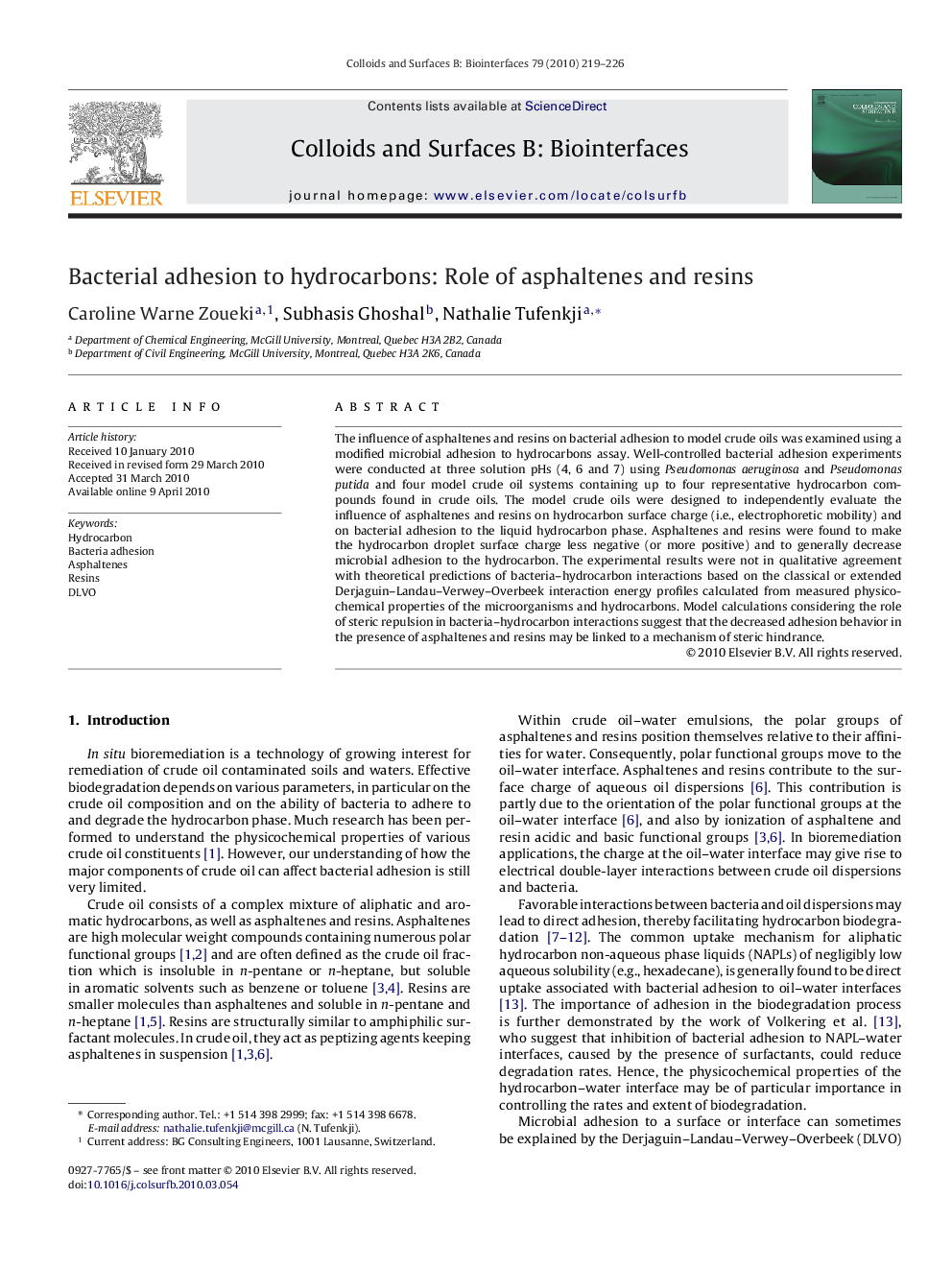| Article ID | Journal | Published Year | Pages | File Type |
|---|---|---|---|---|
| 601559 | Colloids and Surfaces B: Biointerfaces | 2010 | 8 Pages |
The influence of asphaltenes and resins on bacterial adhesion to model crude oils was examined using a modified microbial adhesion to hydrocarbons assay. Well-controlled bacterial adhesion experiments were conducted at three solution pHs (4, 6 and 7) using Pseudomonas aeruginosa and Pseudomonas putida and four model crude oil systems containing up to four representative hydrocarbon compounds found in crude oils. The model crude oils were designed to independently evaluate the influence of asphaltenes and resins on hydrocarbon surface charge (i.e., electrophoretic mobility) and on bacterial adhesion to the liquid hydrocarbon phase. Asphaltenes and resins were found to make the hydrocarbon droplet surface charge less negative (or more positive) and to generally decrease microbial adhesion to the hydrocarbon. The experimental results were not in qualitative agreement with theoretical predictions of bacteria–hydrocarbon interactions based on the classical or extended Derjaguin–Landau–Verwey–Overbeek interaction energy profiles calculated from measured physicochemical properties of the microorganisms and hydrocarbons. Model calculations considering the role of steric repulsion in bacteria–hydrocarbon interactions suggest that the decreased adhesion behavior in the presence of asphaltenes and resins may be linked to a mechanism of steric hindrance.
